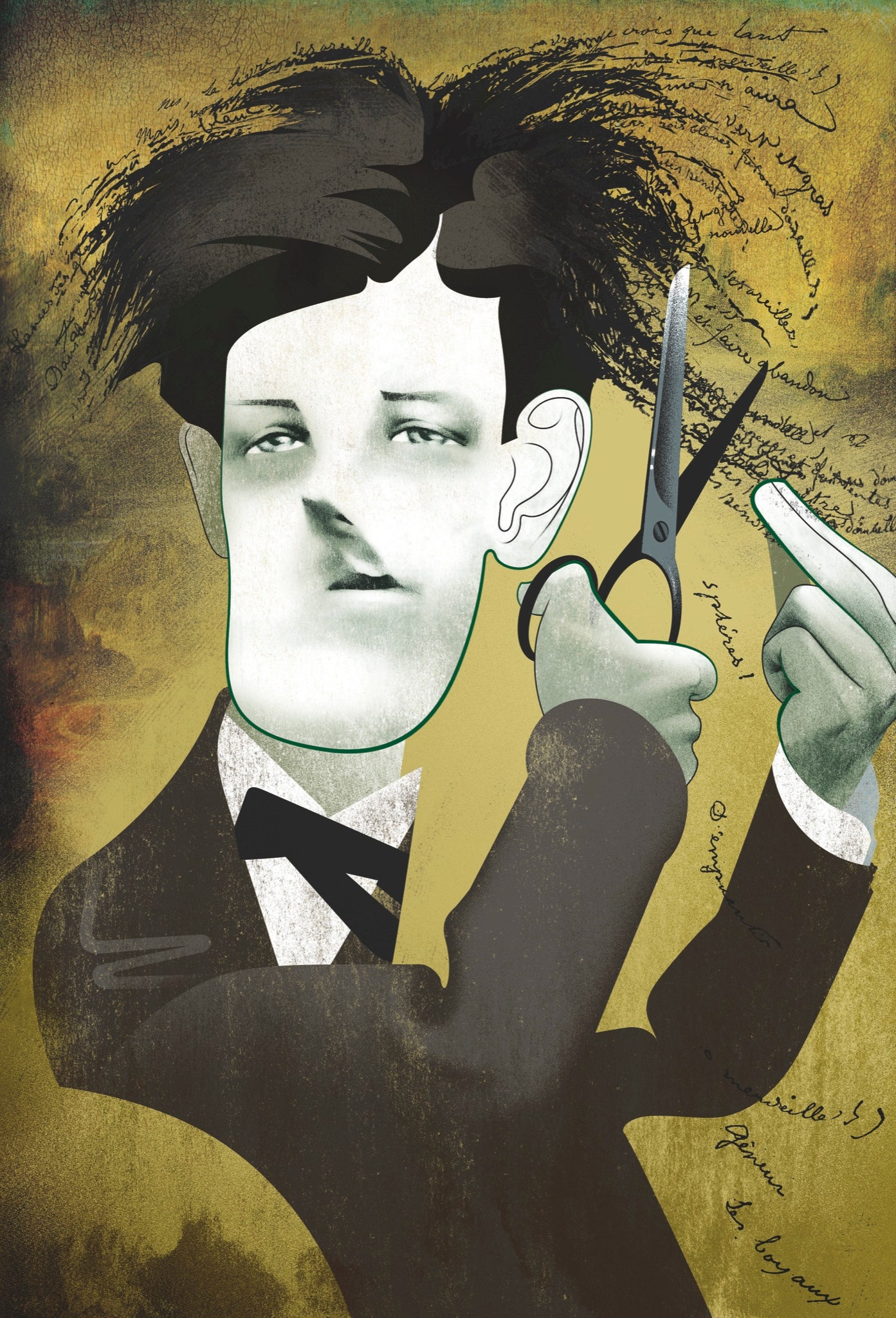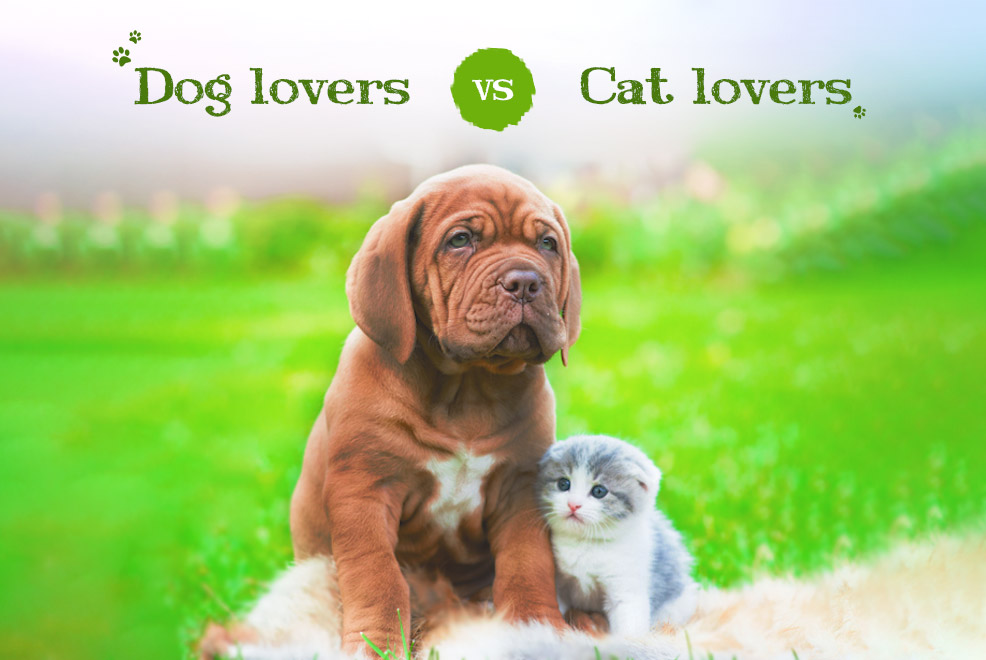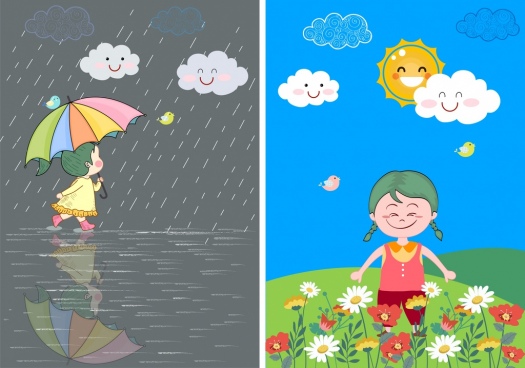THE REBEL for Class 7 ENGLISH
THEME
In the poem ‘The Rebel’, the poet describes the nature of the rebel. The rebel is a person who behaves differently from the rest of the people. He always contradicts others in order to be different.
THEME
In the poem ‘The Rebel’, the poet describes the nature of the rebel. The rebel is a person who behaves differently from the rest of the people. He always contradicts others in order to be different.
EXPLANATION
‘The Rebel’ poem mein poet uss insan ke swabhav (behaviour) ka varnan (describe) kar rahe hai joh baaki logon se alag behave karta hai. Alag hone ke liye veh humesha dusron ka virodh (rebel) karta hai aur cheezon ko apne tarike se karta hai.
EXPLANATION
'द रिबेल' कविता में कवि उस इंसान के स्वभाव का वर्णन कर रहे है जो बाकी लोगों से अलग व्यवहार करता है। अलग होने के लिए वह हमेशा दूसरों का विरोध करता है और चीज़ों को अपने तरीके से करता है।
ABOUT THE AUTHOR

Dennis Joseph Enright (11 March 1920 – 31 December 2002) was a British academic, poet, novelist and critic. He authored Academic Year (1955), Memoirs of a Mendicant Professor (1969) and a wide range of essays, reviews, anthologies, children's books and poems.
ABOUT THE AUTHOR

Dennis Joseph Enright (11 March 1920 – 31 December 2002) was a British academic, poet, novelist and critic. He authored Academic Year (1955), Memoirs of a Mendicant Professor (1969) and a wide range of essays, reviews, anthologies, children's books and poems.
EXPLANATION
Dennis Joseph Enright (11 March 1920 – 31 December 2002) ek British academic, poet, novelist and critic the. Unhone Academic Year (1955), Memoirs of a Mendicant Professor (1969) aur essays, anthologies, children's books bhi likhi hai.
EXPLANATION
डेनिस जोसेफ एनराइट (11 मार्च 1920 - 31 दिसंबर 2002) एक ब्रिटिश अकादमिक, कवि, उपन्यासकार और आलोचक थे। उन्होंने अकादमिक ईयर (1955), मेमोयर्स ऑफ़ अ मेंदिकान्त प्रोफेसर (1969) और निबंध, समीक्षा, बच्चों की किताबें भी लिखी है।
STANZA 1

When everybody has short hair,
The rebel lets his hair grow long.
When everybody has long hair,
The rebel cuts his hairs short.
STANZA 1

When everybody has short hair,
The rebel lets his hair grow long.
When everybody has long hair,
The rebel cuts his hairs short.
IMPORTANT WORDS
Everybody:- everyone, सब लोग
Rebel- a person who is opposed to the other person, एक व्यक्ति जो दूसरे लोगों के खिलाफ व्यवहार करता है
Short- small, छोटे
Long- large on length, लम्बे, बड़े
IMPORTANT WORDS
Everybody:- everyone, सब लोग
Rebel- a person who is opposed to the other person, एक व्यक्ति जो दूसरे लोगों के खिलाफ व्यवहार करता है
Short- small, छोटे
Long- large on length, लम्बे, बड़े
EXPLANATION
Kavi iss kavita mein ek aise insan ki baat kar rahe hai joh baaki logon se alag behave karta hai. Kavi ne use rebel kaha hai kyunki veh baaki samaj (society) se alag behave karta hai aur dusre logon ke vyavhar (behaviour) ka vidroh karta hai. Kavi inn lines ke madhyam se kehte hai ki rebel unn logon ke samne jata hai jinke chote baal (short hair) hote hai toh veh apne hair ko lamba (long) rakhna chahta hai kyunki use samaj (society) ke khilaf jakar khushi aur santushti (satisfaction) milti hai. Kavi yeh bhi kehte hai ki veh sthir (constant) nahi hai aur isliye jab veh logon ko long hair rakhte hue dekhta hai toh veh apne hair ko cut kar deta hai aur short hair rakhta hai.
EXPLANATION
कवि इस कविता में एक ऐसे इंसान की बात कर रहे है जो बाकी लोगों से अलग व्यवहार करता है। कवि ने उसे रिबेल कहा है क्योंकि वह बाकी समाज से अलग व्यवहार करता है और दूसरे लोगों के व्यवहार का विद्रोह करता है। कवि इन पंक्तियों के माध्यम से कहते है कि रिबेल उन लोगों के सामने जाता है जिनके छोटे बाल होते है तो वह अपने बालों को लम्बा रखना चाहता है क्योंकि उसे समाज के खिलाफ जाकर ख़ुशी और संतुष्टि मिलती है। कवि यह भी कहते है कि वह स्थिर नहीं है और इसलिए जब वह लोगों को लम्बे बाल रखते हुए देखता है तो वह अपने बालों को काट देता है और छोटे बाल रखता है।
STANZA 2

When everybody talks during the lesson,
The rebel doesn’t say a word.
When nobody talks during the lesson,
The rebel creates a disturbance.
STANZA 2

When everybody talks during the lesson,
The rebel doesn’t say a word.
When nobody talks during the lesson,
The rebel creates a disturbance.
IMPORTANT WORDS
During- at the moment, उस दौरान
Disturbance- the interruption of a settled and peaceful condition, अशांति फैलाना
IMPORTANT WORDS
During- at the moment, उस दौरान
Disturbance- the interruption of a settled and peaceful condition, अशांति फैलाना
EXPLANATION
Kavi inn lines ke madhyam se rebel ke behaviour par zor dete hai joh dusron ke khilaf behave karta hai. Veh kehte hai ki lesson padhne ke dauran sabhi ko baat karte hue dekhkar rebel chup ho jata hai. Use lagta hai ki uss samay uska chup (quiet) rehna sahi hai. Jab koi bhi lesson padhte samay baat nahi kar raha hota hai toh veh tez-tez bolkar ashanti (disturbance) failane ki koshish karta hai. Veh sabko pareshan karta hai.
EXPLANATION
कवि इन पंक्तियों के माध्यम से रिबेल के स्वभाव पर जोर देते है जो दूसरों के खिलाफ व्यवहार करता है। वह कहते है कि पाठ (lesson) पढ़ने के दौरान सभी को बात करते हुए देखकर रिबेल चुप हो जाता है। उसे लगता है कि उसका चुप रहना सही है। जब कोई भी पाठ पढ़ने के दौरान बात नहीं कर रहा होता है तो वह तेज़-तेज़ बोलकर अशांति फ़ैलाने की कोशिश करता है। वह सबको परेशान करता है।
STANZA 3

When everybody wears a uniform,
The rebel dresses in fantastic clothes,
When everybody wears fantastic clothes,
The rebel dresses soberly.
STANZA 3

When everybody wears a uniform,
The rebel dresses in fantastic clothes,
When everybody wears fantastic clothes,
The rebel dresses soberly.
IMPORTANT WORDS
Uniform:- an identifying outfit or style of dress worn by the members of a given profession, ऐसी वर्दी जो लोग ऑफिस, स्कूल आदि जगह पर पहनते है ताकि काम करने की जगह पर अनुशासन हो सके
Fantastic:- good and colourful, अच्छे और रंगीन
Soberly:- in a simple manner, साधारण
IMPORTANT WORDS
Uniform:- an identifying outfit or style of dress worn by the members of a given profession, ऐसी वर्दी जो लोग ऑफिस, स्कूल आदि जगह पर पहनते है ताकि काम करने की जगह पर अनुशासन हो सके
Fantastic:- good and colourful, अच्छे और रंगीन
Soberly:- in a simple manner, साधारण
EXPLANATION
Kavi inn lines ke madhyam se batana chahte hai ki rebel apne aap ko dusron se alag dikhana chahta hai. Rebel khud ko dusron se alag dikhne ki koshish karta hai. Kavi kehte hai ki jab sabne uniform (aisi vardi joh log office, school etc jagah par pehente hai taaki kaam karne ki jagah par discipline ho sake) pehni hui hai toh rebel colourful aur fantastic (bahut achhe) kapde pehenta hai. Aur dusri taraf, jab sab colourful aur attractive (aakarshit) clothes pehente hai toh rebel simple uniform pehenta hai.
EXPLANATION
कवि इन पंक्तियों के माध्यम से बताना चाहते है कि रिबेल अपने आप को दूसरे से अलग दिखाना चाहता है। रिबेल खुद को दूसरों से अलग दिखने की कोशिश करता है। कवि कहते है कि जब सबने यूनिफार्म (ऐसी वर्दी जो लोग ऑफिस, स्कूल आदि जगह पर पहनते है ताकि काम करने की जगह पर अनुशासन हो सके) पहनी हुई है तो रिबेल रंगीन कपड़े पहनता है। और दूसरी तरफ़, जब सब लोग रंगीन और आकर्षित कपड़े पहनते है तो रिबेल साधारण यूनिफार्म (वर्दी) पहनता है।
STANZA 4

In the company of dog lovers,
The rebel expresses a preference for cats.
In the company of cat lovers,
The rebel puts in a good word for dogs.
STANZA 4

In the company of dog lovers,
The rebel expresses a preference for cats.
In the company of cat lovers,
The rebel puts in a good word for dogs.
IMPORTANT WORDS
Company:- associate with, साथ में
Expresses- to show, दिखाना
Preference:- a special liking, पसंद
Puts in a good word:- to say good words, किसी के लिए अच्छी बाते करना
IMPORTANT WORDS
Company:- associate with, साथ में
Expresses- to show, दिखाना
Preference:- a special liking, पसंद
Puts in a good word:- to say good words, किसी के लिए अच्छी बाते करना
EXPLANATION
Kavi inn lines ke madhyam se batana chahte hai ki jo cheez dusron logon ko pasand aati hai, veh rebel ko achhi nahi lagti hai aur unse mel (match) nahi khati hai. Kavi kehte hai ki agar rebel unn logon ke sath hai jinhe dogs pasand hai toh rebel ko dogs se zyada cats pasand hogi. Veh yahan dogs se zyada mehtav (importance) cats ko dega. Aur dusri aur, jab veh unn logon ke sath hoga jinhe cats pasand hai tab veh dogs ke liye achhi-achhi baate kahega arthat (iska matlab hai) use dogs pasand honge. Atah (yaani ki) rebel ki pasand kabhi bhi baaki logon se match nahi karegi aur veh kabhi bhi dusre logon ki baaton se sehmat nahi hoga.
EXPLANATION
कवि इन पंक्तियों के माध्यम से बताना चाहते है कि जो चीज़ें दूसरों लोगों को पसंद आती है वह रिबेल को अच्छी नहीं लगती है और उससे मेल नहीं खाती है। कवि कहते है कि अगर रिबेल उन लोगों के साथ है जिन्हे कुत्ते पसंद है तो रिबेल को कुत्तों से ज़्यादा बिल्लियाँ पसंद होगी। वह यहाँ कुत्तों से ज़्यादा बिल्लियों को महत्व देगा। और दूसरी ओर, जब वह उन लोगों के साथ होगा जिन्हे बिल्लियाँ पसंद है तब वह कुत्तों के लिए अच्छी-अच्छी बाते कहेगा अर्थात उसे कुत्ते पसंद होंगे। अतः रिबेल की पसंद कभी भी बाकी लोगों से मेल नहीं खाएगी और वह कभी भी दूसरे लोगों की बातों से सहमत नहीं होगा।
STANZA 5

When everybody is praising the sun,
The rebel remarks on the need for rain.
When everybody is greeting the rain,
The rebel regrets the absence of sun.
STANZA 5

When everybody is praising the sun,
The rebel remarks on the need for rain.
When everybody is greeting the rain,
The rebel regrets the absence of sun.
IMPORTANT WORDS
Praising:- to express a favorable judgment, तारीफ़ करना
Remarks:- to say something, कुछ कहना
Greeting:- to welcome, स्वागत करना
Regrets:- to feel sorry, दुःख जाताना
Absence:- non-existence or lack of, किसी की कमी होना
IMPORTANT WORDS
Praising:- to express a favorable judgment, तारीफ़ करना
Remarks:- to say something, कुछ कहना
Greeting:- to welcome, स्वागत करना
Regrets:- to feel sorry, दुःख जाताना
Absence:- non-existence or lack of, किसी की कमी होना
EXPLANATION
Kavi alag-alag examples se darshate hue kehte hai ki rebel kabhi bhi dusre logon se match nahi karta hai. Uski pasand dusron se alag hoti hai. Kavi kehte hai ki mausam ke connection mein bhi, rebel baaki logon se sehmat nahi hota hai. Veh kehte hai ki sardi ke mausam (winter season) mein jab sab log chamakti hui dhoop aur sun ki tareef karte hai toh rebel barish (rain) hone ka wait karta hai. Jab sab logon ko dhoop ki zarurat (need) hai toh rebel ko rain ki need hai. Aur dusri aur, jab sabhi log rain ka swagat (welcome) kar rahe hai toh rebel uss samay sun ki kami (absence) mehsoos (feel) karta hai aur uske na hone ke liye dukh jatata hai.
EXPLANATION
कवि अलग-अलग उदाहरणों से दर्शाते हुए कहते है कि रिबेल कभी भी दूसरे लोगों से मेल नहीं खाता है। कवि कहते है कि मौसम के संबंध में भी, रिबेल बाकी लोगों से सहमत नहीं होता है। वह कहते है कि सर्दी के मौसम में जब सब लोग चमकती हुई धूप और सूरज की तारीफ़ करते है तो रिबेल बारिश होने का इंतज़ार करता है। जब सब लोगों को धूप की ज़रूरत है तो रिबेल को बारिश की ज़रूरत है। और दूसरी ओर, जब सभी लोग बारिश का स्वागत कर रहे है तो रिबेल उस समय सूरज की कमी महसूस करता है और उसके ना होने के लिए दुख जताता है।
STANZA 6

When everybody goes to the meeting,
The rebel stays at home and reads a book.
When everybody stays at home and reads a book,
The rebel goes to the meeting.
STANZA 6

When everybody goes to the meeting,
The rebel stays at home and reads a book.
When everybody stays at home and reads a book,
The rebel goes to the meeting.
IMPORTANT WORDS
Stays- remain in the same place, एक जगह पर रहना
IMPORTANT WORDS
Stays- remain in the same place, एक जगह पर रहना
EXPLANATION
Kavi inn lines ke madhyam se kehna chahte hai ki rebel ko aamtaur (normally) par akele (alone) rehna achha lagta hai. Uske vichar (opinions) aur behaviour dusron se alag hote hai. Veh kehte hai ki rebel veh log hote hai jinhe dusron ki tulna mein ek alag raste par chalna pasand hota hai. Jab baaki log meeting mein jaate hai toh rebel ko apne ghar mein rehna aur book padhna (read) pasand hota hai. Aur jab sabhi log apne ghar mein rehkar book read karna pasand karte hai toh rebel ko meeting mein jana hota hai.
EXPLANATION
कवि इन पंक्तियों के माध्यम से कहना चाहते है कि रिबेल को आमतौर पर अकेले रहना अच्छा लगता है। उसके विचार और स्वाभाव दूसरों से अलग होते है। वह कहते है कि रिबेल वह लोग होते है जिन्हे दूसरों की तुलना में एक अलग रास्ते पर चलना पसंद होता है। जब बाकी लोग मीटिंग में जाते है तो रिबेल को अपने घर में रहना और किताब पढ़ना पसंद होता है। और जब सभी लोग अपने घर में रहकर किताब पढ़ना पसंद करते है तो रिबेल को मीटिंग में जाना होता है।
STANZA 7
When everybody says, Yes please,
The rebel says, No thank you.
When everybody says, No thank you,
The rebel says, Yes please.
It is very good that we have rebels.
You may not find it very good to be one.
STANZA 7
When everybody says, Yes please,
The rebel says, No thank you.
When everybody says, No thank you,
The rebel says, Yes please.
It is very good that we have rebels.
You may not find it very good to be one.
EXPLANATION
Kavi kehte hai ki rebel ko dusre logon ke sath sehmat karana kitna mushkil (difficult) kaam hota hai. Veh kehte hai ki jab sab log ‘haan’ keh rahe hai toh rebel ‘naa’ bolta hai aur jab sabhi log ‘naa’ bolte hai toh rebel ‘haan’ bolta hai. Aage kavi inn lines mein yeh varnan karte hai ki rebel hone ka kya arth (meaning) hai. Veh kehte hai ki agar hamare samaj mein aise log hai joh dusron se alag hai aur galat ke khilaaf khade hote hai, toh yeh bahut achi baat hai lekin agar hum ek rebel ban jaye toh woh cheez hume achi nahi lagegi kyunki samaj (society) hamare khilaf ho jata hai. Jab hum ache ke sath khade ho rahe hai toh baaki log bhi hamare sath jud sakte hai lekin agar hum har cheez ke khilaaf ho jaye toh society mein rehna mushkil ho sakta hai aur hamare liye problems bhi badh sakti hai.
EXPLANATION
कवि कहते है कि रिबेल को दूसरे लोगों के साथ सहमत कराना कितना मुश्किल काम होता है। वह कहते है कि जब सब लोग 'हाँ' कह रहे है तो रिबेल 'ना' बोलता है और जब सभी लोग 'ना' बोलते है तो रिबेल 'हाँ' बोलता है। आगे कवि इन पंक्तियों में यह वर्णन करते है कि रिबेल होने का क्या अर्थ है। वह कहते है कि अगर हमारे समाज में ऐसे लोग है जो दूसरों से अलग है और गलत के खिलाफ खड़े होते है, तो यह बहुत अच्छी बात है लेकिन अगर हम एक रिबेल बन जाए तो वो चीज़ हमें अच्छी नहीं लगेगी क्योंकि समाज हमारे खिलाफ हो जाता है। जब हम अच्छे के साथ खड़े हो रहे है तो बाकी लोग भी हमारे साथ जुड़ सकते है लेकिन अगर हम हर चीज़ के खिलाफ हो जाए तो समाज में रहना मुश्किल हो सकता है और हमारे लिए परेशानियाँ भी बढ़ सकती है।
POETIC DEVICES
Alliteration:- The occurrence of the same letter or sound at the beginning of adjacent or closely connected words.
For Example:- 1) Rebel regrets
2) Rebel remarks
3) The rebel cuts his hairs short
Repetition:- The recurrence of a word or phrase to create emphasis.
For Example:- 'When everybody' and 'The rebel' is used to emphasize on the fact that rebel acts oppositely.
POETIC DEVICES
Alliteration:- The occurrence of the same letter or sound at the beginning of adjacent or closely connected words.
For Example:- 1) Rebel regrets
2) Rebel remarks
3) The rebel cuts his hairs short
Repetition:- The recurrence of a word or phrase to create emphasis.
For Example:- 'When everybody' and 'The rebel' is used to emphasize on the fact that rebel acts oppositely.
SUMMARY
SUMMARY
QUESTIONS AND ANSWERS
Q1. If someone doesn’t wear a uniform to school, what do you think the teacher will say?
Answer. The teacher will ask him/her about the reason for not being in uniform and then will take action accordingly.
Q2. When everyone wants a clear sky, what does the rebel want most?
Answer. When everyone wants a clear sky, the rebel wants clouds and rain the most.
Q3. If the rebel has a dog for a pet, what is everyone else likely to have?
Answer. If a rebel has a dog for a pet, the others will pet cats and be cat lovers.
Q4. Why is it good to have rebels?
Answer. It is good to have rebels as they are beneficial for our society. Only a few people have powers to go against the majority of the people. They stand with their choices bravely and also teach us to be able to accept differences.
Q5. Why is it not good to be a rebel oneself?
Answer. It is not good to be a rebel oneself because society dislikes and rejects the person who does not conform to the society rules or goes against it.
Q6. Would you like to be a rebel? If yes, why? If not, why not?
Answer. I would like to be a rebel because a rebel can think individually and they don’t follow the rules of the society blind-foldly. Yet, it is not easy to be a rebel as society criticizes them for their different behaviour.
QUESTIONS AND ANSWERS
Q1. If someone doesn’t wear a uniform to school, what do you think the teacher will say?
Answer. The teacher will ask him/her about the reason for not being in uniform and then will take action accordingly.
Q2. When everyone wants a clear sky, what does the rebel want most?
Answer. When everyone wants a clear sky, the rebel wants clouds and rain the most.
Q3. If the rebel has a dog for a pet, what is everyone else likely to have?
Answer. If a rebel has a dog for a pet, the others will pet cats and be cat lovers.
Q4. Why is it good to have rebels?
Answer. It is good to have rebels as they are beneficial for our society. Only a few people have powers to go against the majority of the people. They stand with their choices bravely and also teach us to be able to accept differences.
Q5. Why is it not good to be a rebel oneself?
Answer. It is not good to be a rebel oneself because society dislikes and rejects the person who does not conform to the society rules or goes against it.
Q6. Would you like to be a rebel? If yes, why? If not, why not?
Answer. I would like to be a rebel because a rebel can think individually and they don’t follow the rules of the society blind-foldly. Yet, it is not easy to be a rebel as society criticizes them for their different behaviour.
EXTRA QUESTION AND ANSWERS
Q1. Why does the rebel need rain when everyone is praising the Sun?
Answer. A rebel's nature is to go against the norm. It also draws attention and helps him to stand out from the crowd which gives him satisfaction. As a result, the rebel misses the rain while the rest of the world enjoys the sun.
Q2. If a rebel is creating a disturbance, what is everyone else likely to do?
Answer. If a rebel is creating a disturbance, The rest of the group is likely to be silent and attentive.
Q3. What does the rebel do when everybody grows hair long?
Answer. When everybody grows their hair long, the rebel cuts his hair short. It gives him pleasure and satisfaction by going against everyone.
Q4. What does the rebel say, when others say no?
Answer. When everybody says, ‘No thank you', The rebel says, ‘Yes please’.
EXTRA QUESTION AND ANSWERS
Q1. Why does the rebel need rain when everyone is praising the Sun?
Answer. A rebel's nature is to go against the norm. It also draws attention and helps him to stand out from the crowd which gives him satisfaction. As a result, the rebel misses the rain while the rest of the world enjoys the sun.
Q2. If a rebel is creating a disturbance, what is everyone else likely to do?
Answer. If a rebel is creating a disturbance, The rest of the group is likely to be silent and attentive.
Q3. What does the rebel do when everybody grows hair long?
Answer. When everybody grows their hair long, the rebel cuts his hair short. It gives him pleasure and satisfaction by going against everyone.
Q4. What does the rebel say, when others say no?
Answer. When everybody says, ‘No thank you', The rebel says, ‘Yes please’.
GLOSSARY
Everybody:- everyone, सब लोग
Rebel- a person who is opposed to the other person, एक व्यक्ति जो दूसरे लोगों के खिलाफ व्यवहार करता है
Short- small, छोटे
Long- large on length, लम्बे, बड़े
During- at the moment, उस दौरान
Disturbance- the interruption of a settled and peaceful condition, अशांति फैलाना
Uniform:- an identifying outfit or style of dress worn by the members of a given profession, ऐसी वर्दी जो लोग ऑफिस, स्कूल आदि जगह पर पहनते है ताकि काम करने की जगह पर अनुशासन हो सके
Fantastic:- good and colourful, अच्छे और रंगीन
Soberly:- in a simple manner, साधारण
Company:- associate with, साथ में
Expresses- to show, दिखाना
Preference:- a special liking, पसंद
Puts in a good word:- to say good words, किसी के लिए अच्छी बाते करना
Praising:- to express a favorable judgment, तारीफ़ करना
Remarks:- to say something, कुछ कहना
Greeting:- to welcome, स्वागत करना
Regrets:- to feel sorry, दुःख जाताना
Absence:- non-existence or lack of, किसी की कमी होना
Stays- remain in the same place, एक जगह पर रहना
GLOSSARY
Everybody:- everyone, सब लोग
Rebel- a person who is opposed to the other person, एक व्यक्ति जो दूसरे लोगों के खिलाफ व्यवहार करता है
Short- small, छोटे
Long- large on length, लम्बे, बड़े
During- at the moment, उस दौरान
Disturbance- the interruption of a settled and peaceful condition, अशांति फैलाना
Uniform:- an identifying outfit or style of dress worn by the members of a given profession, ऐसी वर्दी जो लोग ऑफिस, स्कूल आदि जगह पर पहनते है ताकि काम करने की जगह पर अनुशासन हो सके
Fantastic:- good and colourful, अच्छे और रंगीन
Soberly:- in a simple manner, साधारण
Company:- associate with, साथ में
Expresses- to show, दिखाना
Preference:- a special liking, पसंद
Puts in a good word:- to say good words, किसी के लिए अच्छी बाते करना
Praising:- to express a favorable judgment, तारीफ़ करना
Remarks:- to say something, कुछ कहना
Greeting:- to welcome, स्वागत करना
Regrets:- to feel sorry, दुःख जाताना
Absence:- non-existence or lack of, किसी की कमी होना
Stays- remain in the same place, एक जगह पर रहना